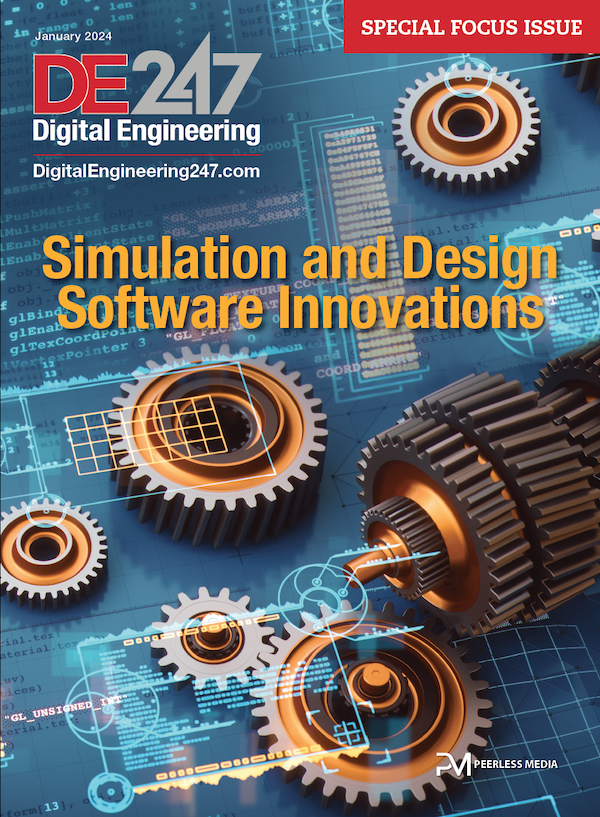High-Performance Computing and the Art of Innovation
Latest News
April 17, 2018
 By Tate Cantrell
By Tate Cantrell
Engineering is the application of scientific knowledge and mathematical methods to practical purposes of the design, analysis or operation of structures, machines or systems—at least according to Wikipedia. So, taken literally, engineering is not science, it is art. The same creativity that takes an artist’s raw material from paint to painting is the same creativity that drives the application of differential equations into machines that economies demand for growth. The challenge for today’s engineering companies is to ensure that creative ideas are efficiently converted into real-world products and delivered at industrial scale.
Since the development of integrated circuits, engineers have been advancing further from the slide rule. In manufacturing, the automotive industry is a shining example of increased efficiency. But what is driving innovation further, improving our products, and enhancing our usability of them and our lives? Everything from scientific calculators to high-powered computer-aided design (CAD) stations have brought us this far, but high-performance computing (HPC) provides engineering companies with the opportunity to apply the models that scientific knowledge and mathematics offer. About 10 years ago, it took three weeks to set up, run and analyze one crash test simulation. Now, thanks to the speed, intensity, depth of processing and data analysis provided by HPC, thousands of crash test simulations can be run in a single day.
HPC for SMBs
In a speech given at ISC15, Jürgen Kohler, senior manager, NVH CAE and Vehicle Concepts at Mercedes-Benz, noted that although most manufacturing companies are small- and medium-sized enterprises (SMEs), very few use HPC. What is preventing the use of available HPC software tools ? The first limitation is a resistance to change.
In SMEs, there is often resistance to invest capital when conventional technologies yield an acceptable result. With HPC, implementations have required significant investment in high-powered servers. The high power demand of HPC servers will push the limits of conventional corporate data centers, and may require an investment in resources to develop and procure new data center solutions.
The second major impediment to a rapid uptake of HPC within the manufacturing sector is a lack of knowledge about the computing systems required for the latest HPC applications. Large manufacturers have teams dedicated to the development and operation of the company’s internal HPC infrastructure. Using the example of crash test simulations, a different skillset to set up and activate the simulator, as well as to interpret data outcomes is required. The lack of in-house knowledge of varying computing structures may require an experienced HPC partner to deploy and ensure effective utilization. Dependency on personnel limits the ability to scale quickly and creates strains on the business that are often greater than those presented by the non-recurring costs to purchase HPC servers.
The final challenge that SMEs must overcome is simply scale. Large manufacturers have shown that when HPC is successfully applied to the next product, bottom-line performance can drive the company to invest further. For many advanced manufacturers, growth in HPC compute is exponential. Exponential growth requires forethought and planning even before overcoming the hurdles of capital and personnel. Exponential growth in HPC requires industrial scale.
Focus on Core Competencies
The recipe for success in HPC is no different than in how any innovative company achieves success. Manufacturing engineering companies should invest heavily in research into the science and the mathematical models that can be creatively applied to the next innovation. Also, they should surround themselves with partners that can enable growth in areas that are not a core component of business success, such as an expertise in HPC servers, including online access and tools that allow the most complex parallel computing clusters to be deployed in a matter of minutes.
HPC delivered at industrial scale will allow an idea to move from an R&D concept to a fully scaled and repeatable process as quickly as an engineering company can create the next application of science into a solution.
As chief technology officer for Verne Global, Tate Cantrell is responsible for setting the technical direction for the company. He oversees the design and development of all aspects of its data center campus. For more information, visit VerneGlobal.com.
Subscribe to our FREE magazine, FREE email newsletters or both!
Latest News






